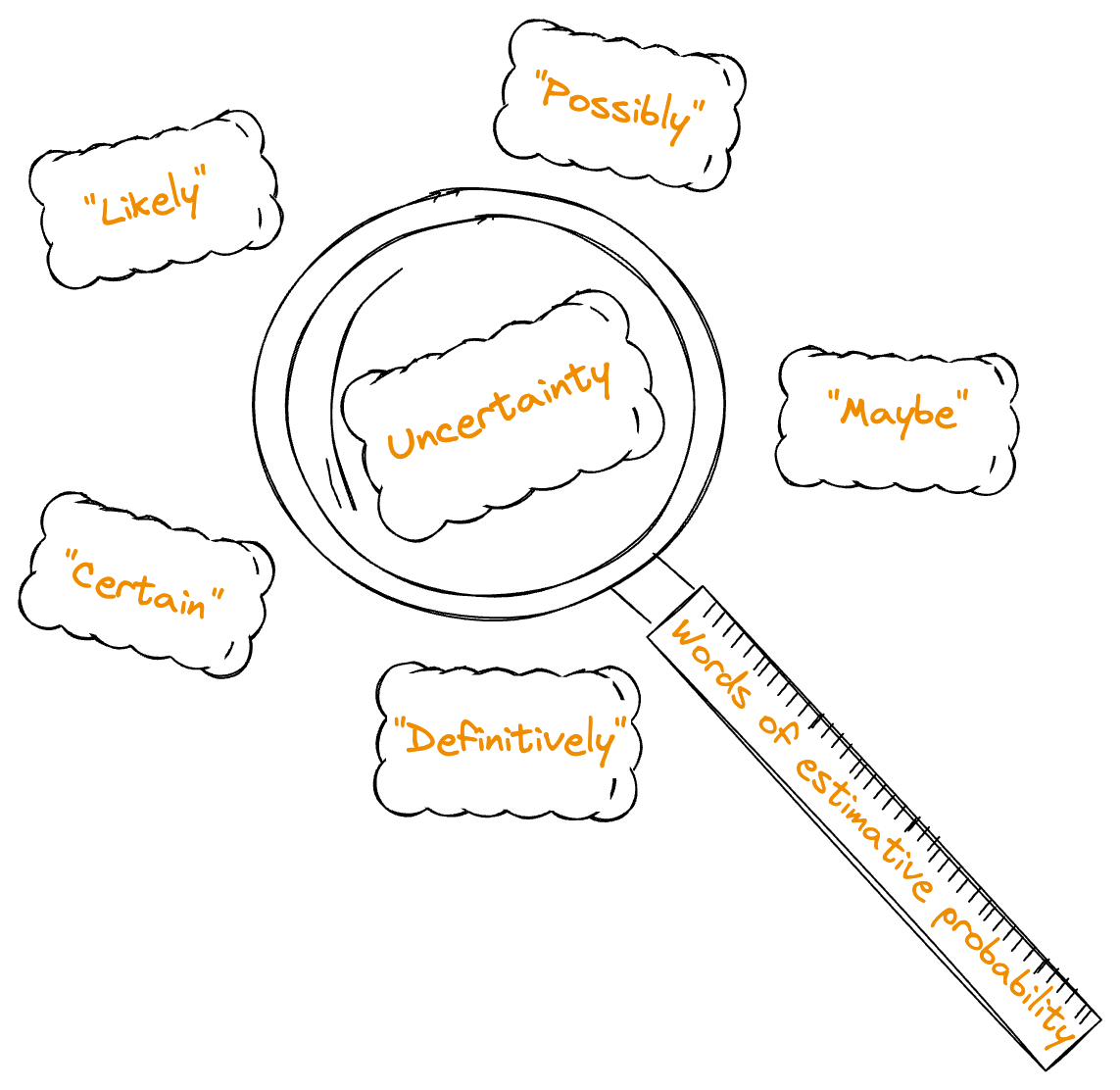Words of estimative probability amplify uncertainty

Imagine being told there’s a “good chance” you’ll win the lottery. How certain does that make you feel? Words like “likely” or “unlikely” are meant to provide clarity, but do they really? Most statements carry a bit of uncertainty, and we use Words_of_estimative_probability to hint at how sure we are. But here’s the kicker: they often don’t do the job we intend them to.
Picture this: you’re at a party, and someone says, “It’s likely to rain tomorrow.” What does “likely” mean to you? 60% chance? 80%? Should you start looking for your favorite rubber boots? After asking yourself, go ahead and ask others to translate “likely” into a probability. I bet you’ll make 2 discoveries:
- Your own answer will fall within a large range (you might think “likely” means 40%-60%).
- Others’ ranges might not overlap much with yours (someone else might think “likely” means 15%-27%).
If the goal is to be precise about our level of uncertainty, then we’re clearly missing the mark if the words we use are ambiguous.
What’s the remedy? Quantify your statements. Instead of saying “I think it’s almost certain that Anna will bake brownies for her birthday,” try saying “I think there’s a 90% chance Anna will bake brownies for her birthday.”
If precision is your goal, ditch the ambiguous “likely” or “possibly.” Instead, embrace clear probabilities. Next time you predict, try saying, “There’s an 80% chance,” and watch as your thinking and communication becomes undeniably sharper and more reliable.